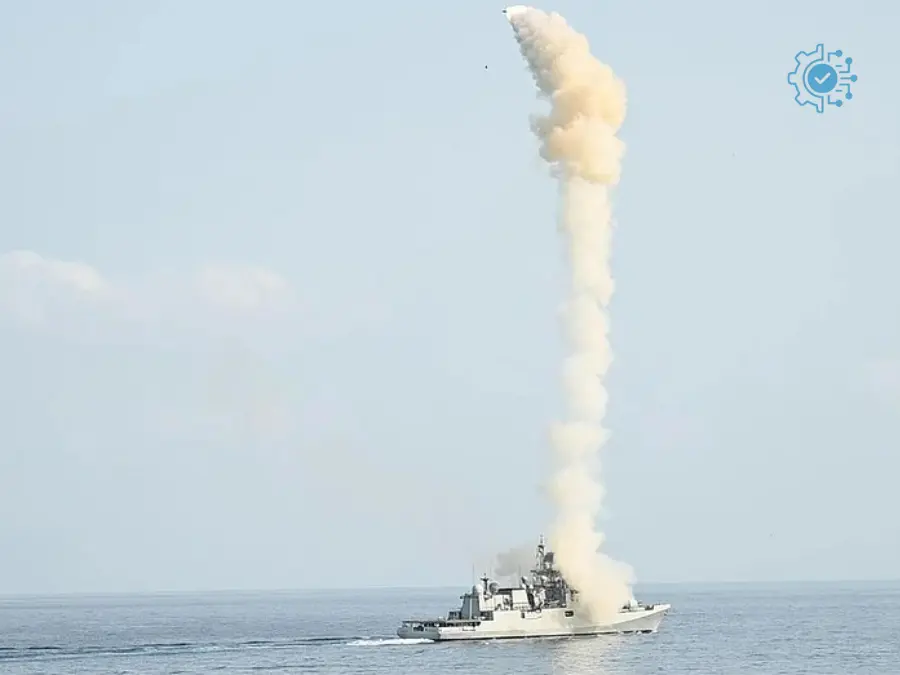Rising Tensions in the Arabian Sea: India Responds Decisively
India launches Arabian Sea operation after Pakistan’s missile and drone attacks, marking a pivotal shift in regional defense strategy. The Indian Navy and Air Force, in coordination with intelligence units, swiftly mobilized a tri-services initiative along the western coast.
The operation began within hours of confirmed Pakistani drone intrusions and missile launches targeting offshore defense assets. Officials confirmed this preemptive strike will secure India’s maritime interests while sending a strong geopolitical message.
What Prompted India to Launch the Arabian Sea Operation?
Over the past week, Pakistan’s military tested India’s resolve through a series of provocative actions. These included drone incursions over India’s offshore installations and unprovoked missile launches. Defense officials viewed these events as an escalation beyond routine ceasefire violations.
India launches Arabian Sea operation after Pakistan’s missile and drone attacks to neutralize potential threats and eliminate any hostile build-up near strategic naval points. This operation was not a knee-jerk reaction but a well-planned response backed by satellite surveillance and maritime intelligence.
Furthermore, India’s defense command believes this coordinated retaliation was essential to prevent further incursions.
Scope and Strategy Behind the Arabian Sea Operation
India launches Arabian Sea operation after Pakistan’s missile and drone attacks, using an integrated defense approach. This includes:
- Deployment of Indian Navy warships and submarines
- Surveillance drones are monitoring Pakistani movements
- Air patrols securing offshore oil rigs and shipping lanes
- Strategic missile batteries were activated along the western coast
According to naval sources, Indian forces have been operating under high alert in the Arabian Sea region. The intent is not only to defend but also to deter, making it clear that Indian sovereignty is non-negotiable.
India launches Arabian Sea operation after Pakistan’s missile and drone attacks with clear operational objectives: ensure deterrence, secure trade routes, and protect coastal populations.
Global and Regional Impact of India’s Move
The world is now watching how South Asia’s nuclear-armed neighbors navigate this rising tension. India launches Arabian Sea operation after Pakistan’s missile and drone attacks, and the move has already caught the attention of major powers.
The United States urged both nations to maintain restraint but acknowledged India’s right to self-defense. France and Japan, India’s key strategic partners, expressed solidarity and offered technical cooperation to monitor maritime threats.
Arab Gulf countries, dependent on uninterrupted trade through the Arabian Sea, welcomed India’s proactive stance. For them, India’s stability ensures economic security in one of the world’s busiest sea routes.
India launches Arabian Sea operation after Pakistan’s missile and drone attacks, not only for its national security but also to preserve international maritime stability.

Pakistan’s Response: Denial and Counter-Narrative
In typical fashion, Pakistan’s government denied any offensive military action. They termed India’s Arabian Sea operation as “unprovoked” and sought international intervention.
However, credible satellite evidence and intercepted military communications point toward deliberate provocations. Pakistan’s use of drones near Indian assets and missile launches into Indian waters triggered immediate alarm across India’s defense apparatus.
India launches Arabian Sea operation after Pakistan’s missile and drone attacks because inaction would signal weakness—a message New Delhi is unwilling to send.
Voices from the Ground: Fishermen, Ports, and Citizens React
In Gujarat and Maharashtra, where the impact of the Arabian Sea operation is felt most closely, people are alert but resilient. Coastal fishermen reported restricted zones and increased military activity, but support the government’s move.
“I saw navy vessels I’ve never seen before,” said Ramesh Bhai, a fisherman from Porbandar. “Yes, we are worried, but we feel safer knowing India is doing something.”
India launches Arabian operation after Pakistan’s missile and drone attacks to ensure precisely this—to restore public confidence and protect critical civilian infrastructure.
How the Arabian Sea Became a New Battleground
The Arabian Sea, often seen as a trade corridor, is now emerging as a battleground for strategic dominance. With China expanding its influence through the Gwadar Port in Pakistan, the maritime space is increasingly contested.
India launches Arabian Sea operation after Pakistan’s missile and drone attacks, not just to answer aggression but also to reaffirm its presence in this evolving theater. The Indian Navy’s dominance here is vital for energy security, international trade, and national defense.
Experts Weigh In: Strategic Timing and Future Implications
Military experts believe the timing of the operation is critical. With ongoing instability in the Middle East and China’s growing assertiveness in the Indian Ocean, India had to act decisively.
India launches Arabian Sea operation after Pakistan’s missile and drone attacks to regain the strategic initiative. It also serves as a message to adversaries that India won’t allow maritime provocations to go unchecked.
Former Naval Chief Admiral Joshi said, “This is not war, but it is strong signaling. India cannot and should not absorb missile attacks without a calibrated military and diplomatic response.”
Looking Ahead: What Happens Next?
India launches Arabian Sea operation after Pakistan’s missile and drone attacks, and while the immediate focus is defense, diplomacy is not off the table. Indian Foreign Minister S. Jaishankar has already reached out to allies, briefing them on the operation’s scope and purpose.
In the coming days, India may push for sanctions or action against Pakistan in international forums if the provocations continue. Meanwhile, Indian defense forces remain in full readiness mode, ensuring both coastal and high-seas security.
India launches Arabian Sea operation after Pakistan’s missile and drone attack, it is not for aggression, but for preparedness, stability, and defense of its sovereignty.
Conclusion: India Draws a Clear Red Line
India launches Arabian Sea operation after Pakistan’s missile and drone attacks with resolve and precision. It is a demonstration of India’s refusal to tolerate violations of its airspace, maritime zones, or national dignity.
This isn’t just a military event—it’s a declaration that India will guard its interests no matter the terrain, whether on land, in the sky, or across the sea.
The Arabian Sea may once have been calm, but now it echoes with the sound of defense. And India stands ready.







